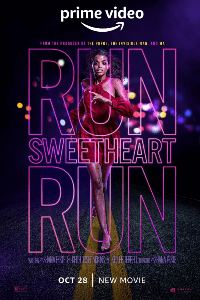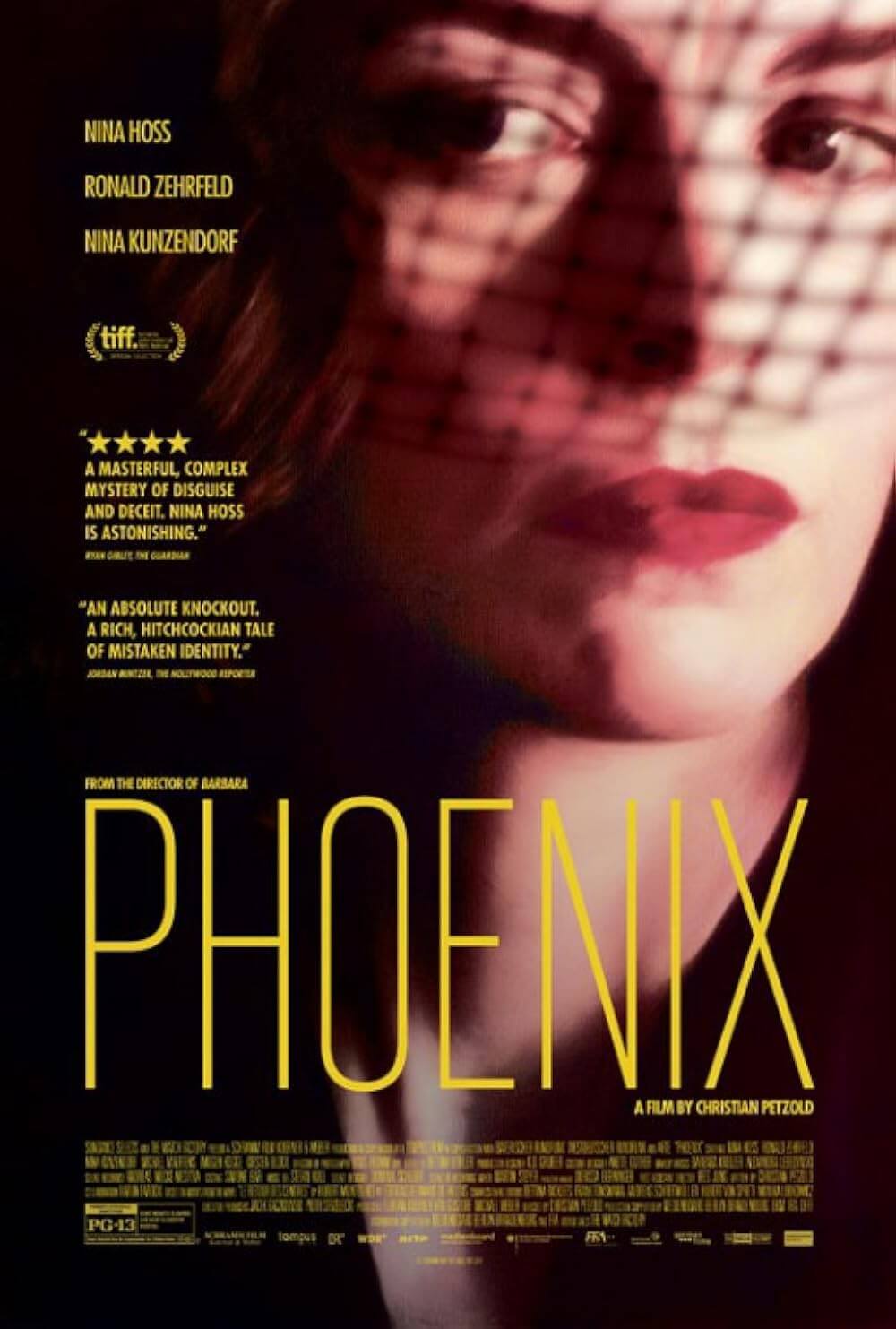Reader's Choice

Run Sweetheart Run
By Brian Eggert |
In Run Sweetheart Run, secretary and single mom Cherie (Ella Balinska) agrees to take her boss’ client out on the town. But the evening transitions from a business dinner to something romantic and finally to a nightmare. Calling the experience a “date from Hell” is no stretch. At first, the client, Ethan (Pilou Asbaek), who’s wealthy and attractive with a sinister smile, seems charming enough. He’s modest, generous, and playful, taking Cherie out for “the best sushi in L.A.” before a quirky trip to a disco roller rink. But when the evening winds down, Ethan reveals his monstrous side and attacks her, then announces a plan to hunt her until the sun comes up. If she survives until morning, he’ll let her go. The cat-and-mouse game that ensues begins like a straightforward thriller but gradually reveals itself to be a blunt-force metaphor that places misogyny and the patriarchy into the framework of a social horror movie. Usually, that would be a welcome setup and message, except, in this case, the obviousness of the dialogue and execution takes away from the pure genre pleasure.
Well before Run Sweetheart Run turns into a horror show, director Shana Feste establishes Cherie’s female subjectivity in a world dominated by men. A law student at UCLA, Cherie works for a firm of entirely white male lawyers who call their female assistants “sweetheart” and compliment them by saying, “That’s my girl.” On a bus, she’s the victim of a frotteurist. And when she’s preparing for her evening with Ethan, she gets her period, but her young daughter throws her last tampon in the toilet, and she doesn’t have time to stop for more. As it turns out, Ethan is keenly attuned to the smell of blood, so once the hunt begins, her period becomes a distinctly female mark of vulnerability. Worse, when she calls the police for help, they instead arrest her for public drunkenness. Conveniently, Cherie’s cellmate in the drunk tank listens to her story and warns that Ethan has done this sort of thing before—in fact, a whole underground of women warriors exists (headed by Shohreh Aghdashloo) to take down Ethan, who’s revealed to have supernatural origins.
Feste isn’t going for subtlety or nuance here, but her tongue-in-cheek approach with co-writers Keith Josef Adkins and Kellee Terrell becomes perhaps too emphatic to be called clever. Rather, the movie unfolds with a touch of Michael Haneke’s Funny Games (1997, 2007), albeit more Hollywood. Early in the proceedings, Ethan looks at the camera and smiles before raising his hand to stop the frame from entering his home, where he proceeds to beat Cherie for the first time. When Cherie emerges, bloodied and terrified, the word “RUN!” appears onscreen in big red letters. Feste repeats these tricks several times throughout the movie, but they feel applied haphazardly. First, they suggest that Ethan is aware of his audience but wants his moments of violence to himself. They also indicate that the filmmakers are on Cherie’s side, issuing warnings every time Cherie is confronted with another threat, such as later encounters with her double-crossing boss (Clark Gregg) and ineffectual ex-boyfriend (Dayo Okeniyi). Of course, when the tables turn, the same warning appears over Ethan in green, and Cherie claims the power to address the camera.
These are not understated flourishes, nor does the on-the-nose script deal in finely graded dialogue. Ethan taunts Cherie, telling her, “No one’s gonna believe you because no one cares.” And the film’s loftier implications as a social commentary become unmistakable when Aghdashloo calls Ethan a “shitstain on society.” The movie takes place in a mythic world reminiscent of Constantine (2005), where the forces of badass women fight a toxic male entity. Is he a vampire, werewolf, or demon? “A dick… he’s a dick,” Aghdashloo clarifies in an amusing moment that masks the story’s roots in Christian lore. Fortunately, Feste and cinematographer Bartosz Nalazek concoct several entertaining sequences that keep the viewer distracted from the movie’s obviousness. The slick camerawork follows Cherie from one late-night encounter to another, including a memorable stop with some well-armed friends and a doomed confrontation on a highway. Run Sweetheart Run is fast-paced and mostly diverting during these sequences, and the impressive-looking production helps.
While there’s always something strange and unexpected happening in the movie, the cast holds the experience together, albeit loosely. Balinska makes for a promising lead, even though her career has been marred with Charlie’s Angels (2019) and Netflix’s abhorrent Resident Evil series. Asbaek risks becoming typecast as a psychotic, as seen in Overlord (2018) and HBO’s Game of Thrones, though his intensity is effective. But one must also admire Feste, versed in mostly feel-good dramas and generic romances, many of which are adapted from best-selling books. She takes a bold swing here. The production, which debuted at the Sundance Film Festival in 2020, finally arrives on Amazon Prime Video after the pandemic delayed the Blumhouse Production’s release. But it shows that Feste is capable of delivering thrills, horror, and action sequences, along with an outspoken purpose. But in the case of Run Sweetheart Run, less may have been more when it comes to the movie’s winking at the audience about its social implications and Fourth-Wall-breaking remarks on power and gender.
(Note: This review was originally posted to Patreon on October 31, 2022.)

Thank You for Supporting Independent Film Criticism
If the work on DFR has added something meaningful to your love of movies, please consider supporting it.
Here are a few ways to show your support: make a one-time donation, join DFR’s Patreon for access to exclusive writing, or show your support in other ways.
Your contribution helps keep this site running independently. However you choose to support the site, please know that it’s appreciated.
Thank you for reading, and for making this work possible.
Brian Eggert | Critic, Founder
Deep Focus Review







